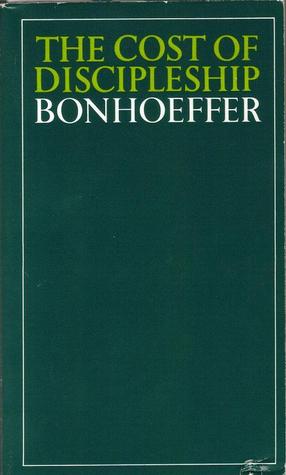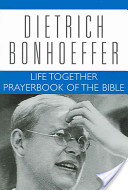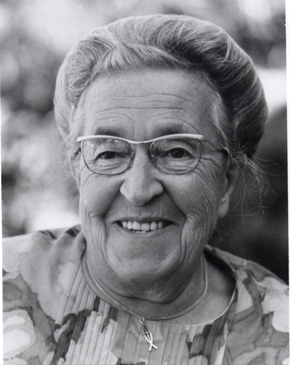
I waited patiently for the Lord; he inclined to me and heard my cry. — Psalm 40:1
In Part 1 I asked the question: How do you “read” and/or pray a Psalm as an individual follower of Christ (possibly as a part of your daily practice) AND as a member of a particular Christian tradition (in corporate and/or daily practice)? And I offered the “simple” exercise of reading, praying, and reflecting upon Psalm 40 AND then comparing/contrasting this exercise with U2’s performance of 40 (Vertigo Tour Live From Chicago, 2005).

While practicing an “active”/intentional waiting for the Lord’s coming during the season of Advent, we should not miss Dietrich Bonhoeffer’s theology being “interwoven with the course of his life” (Eberhard Bethge 1997, viii). So it is not just going to the library and/or the bookstore to pick up copies of Bonhoeffer’s books (or those about him) and imagining what we would have done if we were him. But it is asking and living out our response to the question How shall we then live? (Daily Bible Study based on Ecclesiastes 11:1-12:8. InterVarsity Press). And this is not just what we “do”, e.g., Pastor, martyr, prophet, spy (Note: part of the title of a 2011 book by Eric Metaxas), but who we are in relationship to God. Yes, we must embrace The Cost of Discipleship (1937).
Although Bonhoeffer may cheer U2’s engagement of our religionless world, he did not daily enter what he termed “the school of prayer” (Life Together, 47) individually or corporately in the manner offered by U2 in 40. The first item which particular jumped out to me is Bonhoeffer’s call to begin one’s day with prayer and meditation upon the whole Psalm. In preparation for a class presentation, I found this surprisingly absent in the responsive readings which I grew up with in the Presbyterian Church (USA) (David Jones, ed. The Hymnbook. 1955) and Scripture readings in a number of contexts. Although the responsive reading included much more of the Psalm than U2, it left out (maybe not surprisingly?) God’s shaming of those who oppress David (Psalm 40:13-15).

But how do we come to know and interact with the God who is really, real? The importance of reading through and prayerfully considering all of Scripture has continued to strike a deep chord with me over the past year, even more so as my children continue to mature. What should be “left out” for their benefit or that of others who may be “harmed”/offended when in larger contexts? As you may remember from Who Am I? Bonhoeffer as a Historical Mentor in Prayer: Part 4, Bonhoeffer points the Christ-follower to consider the forgiveness of the enemies of God through the cross, “Thus the carrying out of vengeance becomes grace for all men in Jesus Christ” (Psalms: The prayer book of the Bible, 59). Furthermore, he notes that Christ prays all the Psalms through us (Life Together, 47). Bonhoeffer writes in Psalms: The prayer book of the Bible:
David . . . prays, Christ prays, we pray (21).
A complex and powerful statement considering the context, i.e., Nazi Germany’s oppression of the Jews. AND he paid “The Cost of Discipleship” in the ban of future publications, interrogations, and continuing to be “on the watch list” with regard to his attempts at speak/teach publicly. Note: do not forget his “subversive” seminary (Finkenwalde Seminary) had been closed by the government and many of those connected with it were arrested.

[The lamentation Psalms] proclaim Jesus Christ to be the only help in suffering, for in him God is with us (Bonhoeffer. Psalms: The prayer book of the Bible, 48).
To God be the glory!
Questions for your reflection:
- Do you consider the Psalms “the school of prayer”?
- How often and how much of the Book of Psalms do you read and/or pray? Do you and those with whom you gather to worship lean toward reading/praying some or all of a Psalm?
- How do you understand the relationship of David to Jesus the Messiah/Christ? How does this inform your reading of the Psalms?
- In what manner do the Psalms inform your walk with the Lord, possibly even your daily walk with the Lord as part of the people of God?
- For what are you actively/intentionally waiting? Are you actively/intentionally waiting for the Lord?
Note: Sources Consulted for the whole project (PDF).
To be continued . . .
Tom enjoys daily conversations regarding living out the Biblical Story with his wife Theresa and their four girls, around the block, at Elizabethtown Brethren in Christ Church (where he teaches adult electives and co-leads a small group), among healthcare professionals as the Northeast Regional Director for the Christian Medical & Dental Associations (CMDA), and in higher ed as a volunteer with the Emerging Scholars Network (ESN). For a number of years, the Christian Medical Society / CMDA at Penn State College of Medicine was the hub of his ministry with CMDA. Note: Tom served with InterVarsity Christian Fellowship / USA for 20+ years, including 6+ years as the Associate Director of ESN. He has written for the ESN blog from its launch in August 2008. He has studied Biology (B.S.), Higher Education (M.A.), Spiritual Direction (Certificate), Spiritual Formation (M.A.R.), Ministry to Emerging Generations (D.Min.). To God be the glory!

Leave a Reply